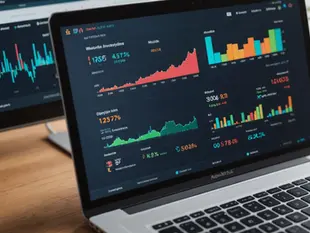
How to Utilize WHOIS Report for Professional Editorial Insight - A Free Tool for Uncovering the Unknown
0
7
0
In today's digital landscape, knowing the ownership and history of a domain can provide essential insights. If you're a journalist, researcher, or just curious about a website, a WHOIS report can be a powerful tool. This report reveals significant details about domain owners and registrants, offering clarity in a complex online environment. This post explains how to utilize WHOIS reports effectively, emphasizing their free availability and the valuable insights they provide.
What is WHOIS?
WHOIS is a protocol that helps you gain information about the registered users of a domain name or an IP address. When you perform a WHOIS lookup, you can find details such as the domain's registration date, expiration date, nameservers, and the contact information of the registrant. This information is vital for validating websites and understanding their ownership.
For example, a WHOIS lookup might reveal that a domain was registered in 2015 but has changed ownership multiple times since then. Such information is crucial for anyone needing a deeper understanding of the digital landscape.
Why Use a WHOIS Report?
Several reasons make WHOIS reports useful:
Verification: If you are suspicious of a website's legitimacy, a WHOIS report can confirm the owner's identity, helping you assess trustworthiness.
Research: Journalists need to understand a domain's background to craft accurate stories. For instance, if a news outlet reports on a website that spreads misinformation, knowing who owns it can shed light on possible biases or motives.
Breach Investigation: In the case of online fraud, WHOIS information can help trace actions back to their sources. Law enforcement often uses this data to build cases.
Historical Insight: Some WHOIS services keep historical records. For example, analyzing a domain's registration changes over the years can reveal shifts in ownership and purpose.
SEO and Competitive Analysis: Accessing WHOIS reports can enhance your understanding of competitors' online presence. This knowledge may help identify new market opportunities.
How to Access WHOIS Reports for Free
Numerous online services provide free WHOIS reports. Here’s how to use these tools effectively:
Step 1: Choose a WHOIS Lookup Tool
Start by selecting a reliable WHOIS lookup tool. Popular options include ICANN WHOIS, WHOIS.com, and DomainTools. Each platform offers a straightforward interface, making it easy to start your search.
Step 2: Enter the Domain Name
Input the domain name you want to investigate. Double-check the spelling to ensure accuracy and avoid retrieval errors.
Step 3: Analyze the Report
After a short processing time, your WHOIS report will appear. Focus on these key areas:
Registrant Information: This section shows the domain owner's name and contact details, unless they are protected by privacy services.
Domain Status: The report will indicate if the domain is active, expired, or in redemption.
Dates: Important dates like creation, update, and expiration can provide insight into the domain's history and lifespan.
Step 4: Privacy Considerations
Many registrars offer privacy protection, masking ownership details. Keep this in mind when evaluating a domain’s credibility. For instance, a website under a privacy shield may appear less trustworthy compared to one with clear ownership details.

Use Cases for WHOIS Reports
WHOIS reports can serve many purposes:
Journalistic Investigations
For journalists, a WHOIS report can reveal hidden information about domain ownership. For example, identifying who runs a site known for spreading false information can lead to more thorough reporting.
Academic Research
Researchers studying trends on the internet find WHOIS data fascinating. It can help track domain acquisitions over time, enhancing thesis projects and case studies.
E-commerce Safety
Before making a purchase online, consumers can use WHOIS reports to confirm a website's legitimacy. Knowing the domain owner helps shoppers make safer choices.
Limitations of WHOIS Reports
While WHOIS reports are beneficial, it's essential to recognize their limitations:
Data Protection Laws: New privacy laws, like GDPR, often shield personal data. As a result, genuine registrant information may not be easily accessible.
Inaccuracy: The information in a WHOIS report can sometimes be outdated, as domain owners might neglect updates.
Privacy Services: Many users opt for privacy protection, obscuring their true identities. This can complicate ownership identification, making it harder to evaluate credibility.
Best Practices for Using WHOIS Reports
To maximize the value of WHOIS reports, consider these best practices:
Verify the information using additional sources where possible.
Monitor the domain's status and history for any unusual activities.
For academic writing, ensure you reference WHOIS data appropriately for credibility.

Unlocking Domain Insights
Whether you are a journalist, researcher, or simply an inquisitive internet user, the utility of WHOIS reports is significant. This free tool provides deep insights into domain ownership and history, enhancing your understanding of the digital world. Despite some limitations, grasping the value of WHOIS data can greatly improve your research and investigative efforts.
Explore the world of WHOIS reports and unveil the hidden aspects of web domains to elevate your knowledge and analysis today.





